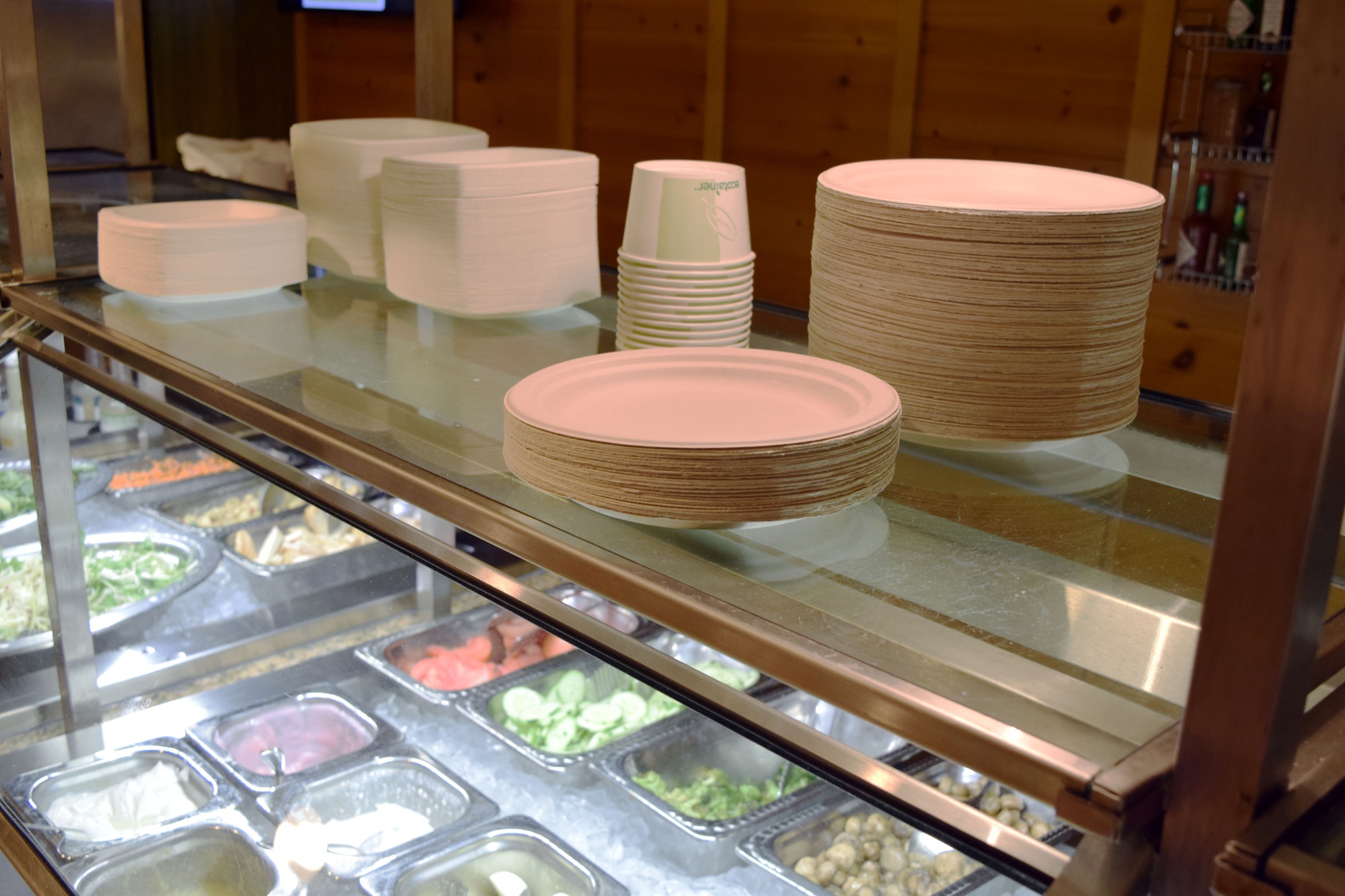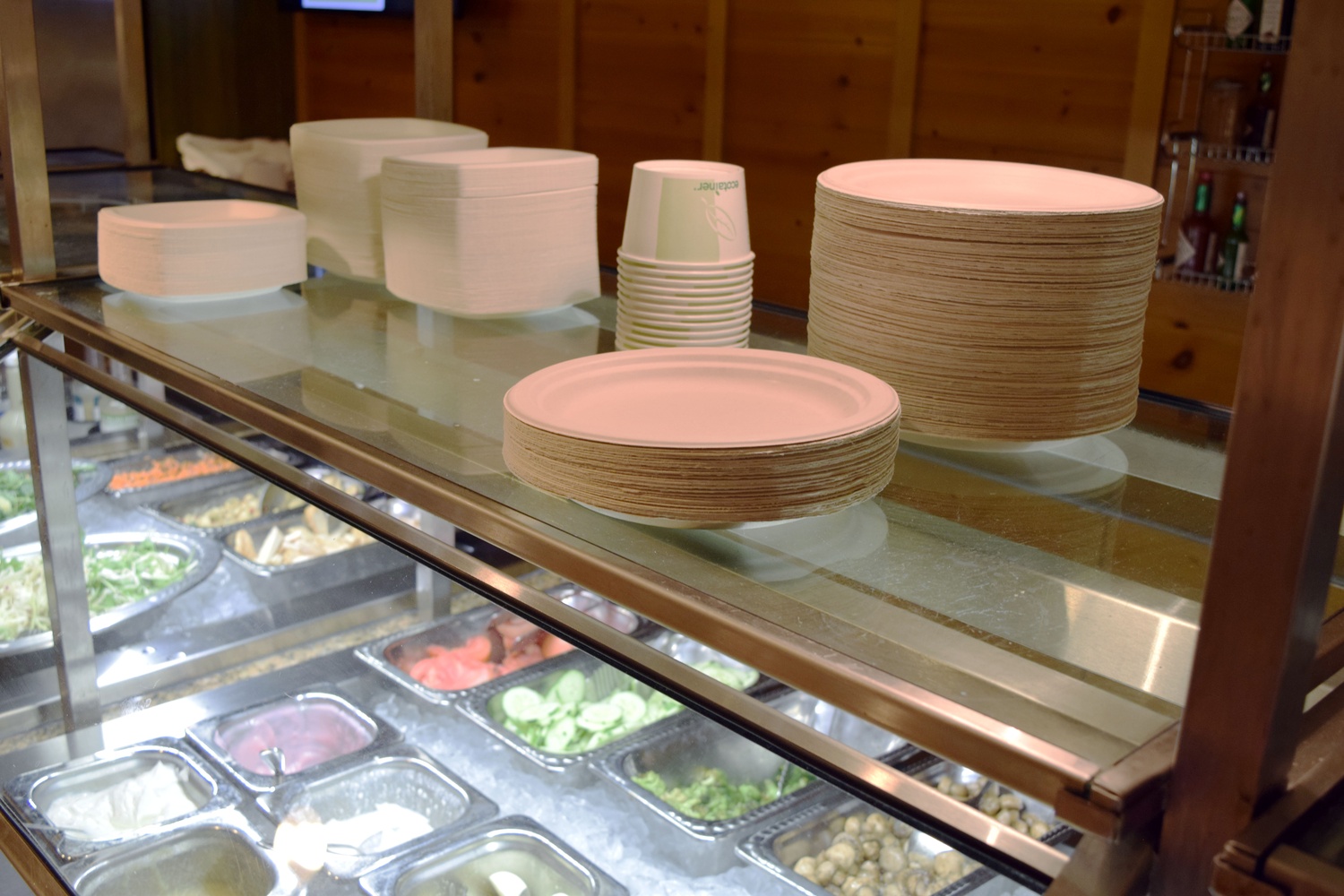
News
Summers Will Not Finish Semester of Teaching as Harvard Investigates Epstein Ties

News
Harvard College Students Report Favoring Divestment from Israel in HUA Survey

News
‘He Should Resign’: Harvard Undergrads Take Hard Line Against Summers Over Epstein Scandal

News
Harvard To Launch New Investigation Into Epstein’s Ties to Summers, Other University Affiliates

News
Harvard Students To Vote on Divestment From Israel in Inaugural HUA Election Survey
With Strike Looming, Some Students Unconcerned About their Next Meal

Dinner conversations buzzed as normal in dining halls across campus while students ate their last meals before a dining services workers’ strike set for Wednesday.
As students dined with plastic forks and disposable plates, some said they intended to eat in the dining halls as usual this week, even while HUDS workers are set to form picket lines just outside.

“I’m not making any special preparations–none of my blockmates are,” Julius B. Ross ’17 said over his meal in Adams dining hall. “We’re just planning on rolling with the punches.”
The University and Local 26, the Boston-based labor union that represents Harvard’s dining service workers, failed to reach a contract agreement Tuesday night, leading the union to announce it would strike Wednesday morning.
Dean of Students Katherine G. O’Dair wrote in an email sent to undergraduates earlier Tuesday that three upperclassman dining halls–Kirkland, Dunster, and Cabot–would close starting Wednesday for the duration of the strike. The other dining halls will extend their hours, and access to FlyBy, an alternative dining option for upperclassmen, will also be extended to freshmen.
O’Dair did not further elaborate on how dining halls will be staffed during the strike, though some Faculty Deans said the management of HUDS will largely provide meals for students. Menu options will also be modified slightly.
In the days before Local 26 announced the HUDS strike, the University started stockpiling large quantities of frozen foods in the dining halls.
Despite the uncertainty, some students said they did not feel inconvenienced by the strike.
“I’m still planning on eating in my dining hall,” Yasmin Z. Sachee ’18 said. “The majority are open, with a few exceptions, and the longer hours seem good to me.”
“I’m not sure what the strike entails for my dining options,” Obinna M. Igbokwe ’20 said. “But I didn’t do anything to prepare for it.”
Harrison H. Li ’18, whose dining hall in Kirkland House will be closed during the strike, said he was trying to keep his meal schedule normal.
“It’s a minor inconvenience, but I don’t think it’ll have a drastic impact on my day-to-day routine,” he said. “There are much worse things in life than walking an extra 50 or 100 feet to a neighboring dining hall.”
Some students, though, have contingency plans in place.
“My suitemates and I have been hoarding food like no one’s business,” Sofia Garcia ’20 said. “It’s like a little Annenberg in our room.”
She, in addition to her suitemates Claire Burch ’20 and Elizabeth D‘Haiti ’20, have taken food–cereal, fruits, and even hamburgers–back to their room in Pennypacker in backpacks and Tupperware containers, Garcia said.
She added, “The walk from Pennypacker to Annenberg is just not worth it now.”
Want to keep up with breaking news? Subscribe to our email newsletter.
